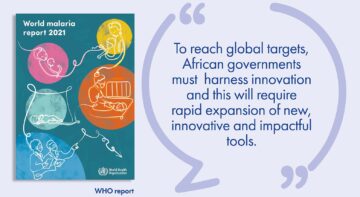Blogs

President Yoweri Museveni has vowed to launch a full war against mosquitoes and malaria saying the focus has been on curative side and not so much on prevention and elimination. The president said community mobilisation, political will and strengthening research capacity will be prioritized in the fight against malaria.
“We were used to mainly the curative side. Prevention is not emphasized. We need to study data, what do we gain if we shift from curative to prevention or elimination. Can we develop vaccines, eliminate vectors and promote behaviour change? If we aim at elimination, we need to study how successful countries did it,” he said.
The President was speaking at a virtual webinar titled titled Rethinking Malaria in the Context of COVID-19 on Wednesday September 1, 2021 organized by the Harvard University and other partner institutions around the world to take stock of the global malaria situation and offer insights on the most effective and innovative response to control and eliminate malaria across the globe.
The President acknowledged that the handling of malaria has been a bit leisurely. “It is true we have been a bit leisurely in our handling of malaria. We have lived with it for centuries and it is not as scary as Corona and Ebola although the costs of treating malaria are high. We have been diverted with a lot of things including minimum recovery and development. Suppose we eliminate malaria, how much can we save? Can we develop a vaccine? I am ready to launch a full war against mosquitoes and malaria,” he said.
President Museveni said diseases are not simply biology, but natural viruses and germs propelled by human behaviour. “I am ready to launch a full war against the mosquito and the plasmodium so that we are free from malaria,” said President Museveni at the virtual webinar titled Rethinking Malaria in the Context of COVID-19 on Wednesday September 1, 2021. His statement came after scientists had highlighted community engagement, commitment at both local and national level and evidence based decision-making as essential conditions in the successful fight against malaria.
Despite millions of dollars invested in the fight against malaria, anopheles mosquitoes have continued to match across Africa unperturbed, wrecking economic havoc and visiting deaths and untold sufferings to millions of populations. Malaria kills more than 650,000 people each year; majority of them occurring on the African continent. In 2019, 229 million people were infected. That’s about 3 percent of all humans on Earth, every year. Worse off, 409,000 people died of malaria. These were preventable deaths.
Over the past two decades, great progress has been made in the malaria fight, saving more than 7 million lives and preventing over 1 billion malaria cases.
There is urgent need for Uganda and the African continent at large to engage with the ongoing efforts to test new tools for malaria control and elimination including the use of gene drives. For gene drives, communities and leaders in Africa need to understand the technology, the benefits it could bring if proven to work, and voice their concerns so that these can be addressed in the ongoing research efforts. Exploratory research that hopes to test gene drives mosquitoes for malaria control and elimination is going on in Uganda, Burkina Faso, and Mali.
To stimulate dialogues on the gene drives research for malaria control as well as on other novel tools being developed to improve health outcomes in Africa, the African Institute for Development Policy (AFIDEP) launched the Platform for Dialogue and Action on Health Technologies in Africa (Health Tech Platform) to enable Africans to be meaningfully involved in driving balanced and objective discussions about transformative health technologies being developed, tested or piloted in Africa. Through multiple activities, the Platform will connect the public/communities, civil society, researchers and government officials to deliberate on key health technologies to ensure that the development of these technologies responds to their needs and contexts.
The African Union-NEPAD has resolved to support AU Member States in building regulatory systems that are required to safely explore the usage of innovative tools for the elimination of malaria and other persisting and emerging health issues on the continent. The Platform offers a perfect opportunity for open and transparent discussions to complement efforts of African governments (including Uganda) and the AU-NEPAD to end malaria in Africa.
Armed with cutting edge tools, researchers are burning the midnight oil in laboratories studying the potential of the gene drive technology to eliminate malaria. In this research, mosquitoes modified with gene drive systems will be tested as new tools reduce or prevent transmission of vector-borne diseases such as malaria. Gene drive systems have the potential to spread new genetic traits at a much-higher rate than normal genetic inheritance. They therefore have the potential to either crush populations of malaria-transmitting mosquitoes, or make the mosquitoes unable to transmit the malaria parasite. This could be the game-changer in the fight against malaria in Africa.
Museveni’s recent pronouncement offer a glimmer of hope for the pending legal reforms needed to pave way for the testing of new tools such as gene drives for malaria elimination in Uganda.
Uganda started developing a biotechnology law in 2004. The government tabled the National Biotechnology and Biosafety Bill in Parliament in 2012. However, the bill had not yet reached the second and third reading by the time the 9th parliament dissolved in May 2016. It was reinstated by the tenth parliament on 15th July 2016 and thereafter referred to the committee of science and technology on 5th November 2016.
Parliament passed the bill twice. But President Yoweri Museveni declined to assent to it on both occasions. Museveni first returned the bill in December 2017 citing 12 reasons. He noted among others that Parliament should change the title of the Bill to GMO because it focuses on the regulation of genetically engineered organisms. Museveni also asked MPs to add penalties for scientists who mix indigenous animals and plants with GMOs, and to provide for patent rights on indigenous varieties.
In 2018, Parliament passed the bill as the Genetic Engineering Regulatory Bill after reconsidering Museveni’s proposals. However, Museveni returned the Bill to Parliament in August 2019. The former speaker of parliament, Rebecca Kadaga, noted that Museveni had introduced new clauses that Parliament must consider before he assents to the bill.
Museveni noted that while the country must have a law that permits scientists to carry out research and make scientific breakthroughs, it should also safeguard Uganda’s beautiful ecology and diversity. Without a biotechnology law, the ongoing planned research in Uganda on gene drive mosquitoes for malaria control will not be able to proceed to field-testing. Without field-testing, these research efforts will collapse and the potential of gene drives in malaria control and elimination will never be known.
Uganda’s National Environmental Management Authority (NEMA) says its drafting regulations for genetically modified organisms with the aim of operationalizing sections of the NEMA Act, 2019.
Uganda has the 3rd highest global burden of malaria cases (5%) and the 8th highest level of deaths (3%) with the highest proportion of malaria cases in East and Southern Africa at 23.7% according to the 2019 World Malaria Report of the World Health Organisation. Africa accounts for 94% of all malaria deaths and illnesses in the world. And so, Africa is the place where the gene drive technology needs to be tested because if it is tested elsewhere, we will never know if indeed it can control or eliminate malaria on the continent.
Emerging transformative technologies, such as genetically modified mosquitoes, drones and artificial intelligence have high potential to change the trajectory of disease and general well-being if they are successfully developed and effectively deployed.
Related Posts





